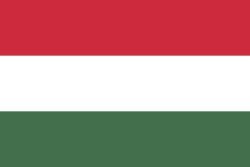After an additional contribution by Hungary, share of EU member states in IIB’s capital approaches 50%

Hungary has made an additional EUR 10 million payment to the paid-in capital of the International Investment Bank (IIB), having fulfilled all the obligations regarding its contribution as the Bank’s new member country according to the resolution of the 102nd IIB Council Meeting (November 2014, Bulgaria).
As a result, Hungary increased its share to EUR 40 million (12.78%), surpassing the Czech Republic and becoming IIB’s third largest shareholder after the Russian Federation (47.92%) and the Republic of Bulgaria (13.48%). At the same time, the combined share of the Czech Republic, Slovakia, Hungary, Romania and Bulgaria – IIB’s member countries within the European Union – in the Bank’s capital reached 48.72%. Meanwhile, Cuba’s share is at 1.71% and share of Asian members of the IIB (Vietnam and Mongolia) at 1.65%.
Hungary's contribution increased the total amount of IIB’s paid-in capital, which has doubled from EUR 165 million since the end of 2012 to the current EUR 313 million.
Chairman of the IIB Board, Nikolay Kosov, said: “While Russia has kept its status as the largest shareholder of our international development institution, the increase in the share of EU countries in the Bank's capital indicates a new level of partnership with our European colleagues. It is also a testimony to the demand for IIB’s financial products and services within the EU and to the prospects for implementation of large-scale projects in the region, including multilateral projects with the participation of all member countries of the Bank.”
Redistribution of shares in IIB’s paid-in capital will continue contributing to its increasing balance and will give an additional boost to the diversification of the Bank’s activities. In the past three years, around 50% (over EUR 250 million) of IIB’s investments were signed in the EU.
Nikolay Kosov also stressed, “The continued capitalisation of the IIB reflects the demand for the further enhancement of its role for the current member states as a modern multilateral development institution, which also remains open for admission of new members”.


